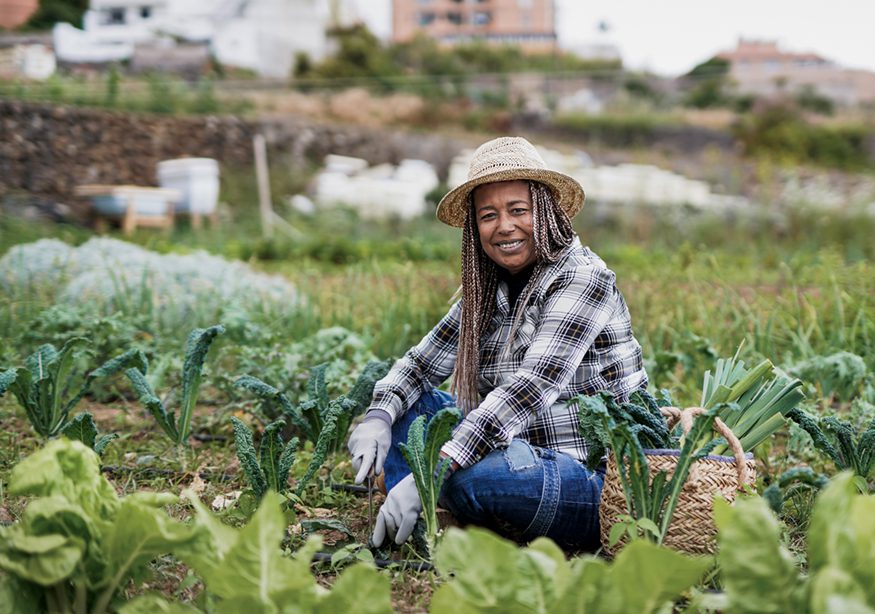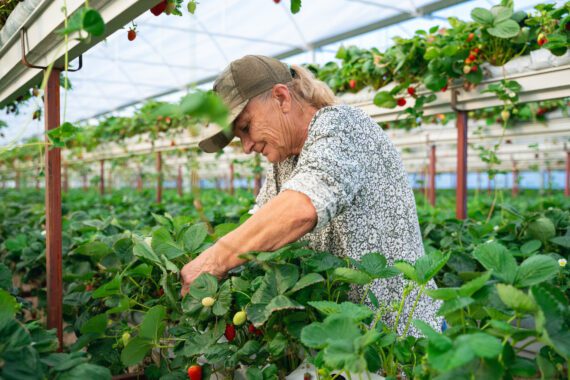By Todd Post
Exactly a year ago, I wrote about the changing landscape for Black farmers in the United States.
Bread for the World’s work on hunger, the U.S. food system, and racial equity come together in our focus on justice for Black farmers—ending continuing inequities and taking at least the first steps to reverse the damage done by generations of overt racial discrimination.
Particularly in the past year, Bread has been focusing much of its racial equity work on the Department of Agriculture (USDA). This focus will intensify as Bread steps up its work on the upcoming U.S. farm bill, the legislation with the greatest impact on U.S. hunger and food insecurity policies. The administration has said it will do more to end systemic racism in U.S. government agencies. Debt relief for Black farmers is one test of this commitment.
Generations of Black farmers experienced discrimination in accessing loans and other support programs offered by USDA. Cases are well documented, and they led to a class action discrimination suit and ultimately, a historic settlement between USDA and Black farmers. One of many consequences of these decades of discrimination that is still with many Black farmers, however, is debt.
Drafts of the American Rescue Plan, enacted in 2021, included debt cancellation for thousands of Black farmers, but this effort was stymied by lawsuits alleging that singling out victims of discrimination for debt relief was itself discriminatory. Initially the administration took steps to defend the debt cancellation plan in court. However, it later abandoned the effort over concerns that losing a court case could have ramifications not just for debt cancellation for farmers, but for a range of other efforts to redress racial discrimination.
In the article I wrote a year ago, I highlighted the Justice for Black Farmers Act, introduced in both the Senate and the House. It is doubtful that Congress will take up the legislation in the remaining months of its term, but that does not mean that it has so far had no impact. The imprint of the Justice for Black Farmers Act is plain to see in actions taken by USDA officials.
The bill calls for the establishment of an Equity Commission within the agency, and USDA began the process of establishing one in September 2021. Another provision calls for forming a civil rights oversight board; recently the agency appointed its first Senior Advisor for Racial Equity in the Office of the Secretary and launched its first Racial Justice and Equity Internal Working Group. USDA also published a comprehensive list of activities to promote equity, and it continues to add new actions it has taken.
One that I’d like to highlight is the January 2022 announcement of $50 million in grant money to improve equity in conservation programs and address climate change. An example given of the two-year projects the grant program will support is an effort to extend federal conservation assistance to reach more farmers who are new to farming, low income, socially disadvantaged, or military veterans.
Conservation assistance is important because it’s an effort to correct the current situation, in which Black farmers, as well as other socially disadvantaged farmers, have largely been left out of conservation programs. These initiatives need to be accessible to many more farmers and more diverse groups of farmers.
Another reason to support new farmers is that younger people may be more likely to see climate change as a threat to us all—and therefore a problem everyone should be making efforts to solve. It is critically important to enable farmers to see themselves as leaders and active participants in efforts to combat climate change—for one thing, the U.S. agricultural sector alone produces more greenhouse gases than many countries’ total emissions. But this will require a true paradigm shift.
USDA cannot on its own persuade large numbers of farmers to champion climate smart agriculture techniques—practices such as cover cropping, for example, that help reduce greenhouse gas emissions on farms. But where there are farmers interested in conservation, USDA support can make it a feasible choice over other options.
Sections of the Justice for Black Farmers Act read as though its authors consider sustainability equally important as equity. The broader food justice movement also views both sustainability and racial equity as integral to rebuilding food systems that work for everyone. There is, in fact, no doubt that sustainable and equitable food systems are important to our common humanity and the challenges we all face together.
Todd Post is senior researcher, writer, and editor with Bread for the World.



